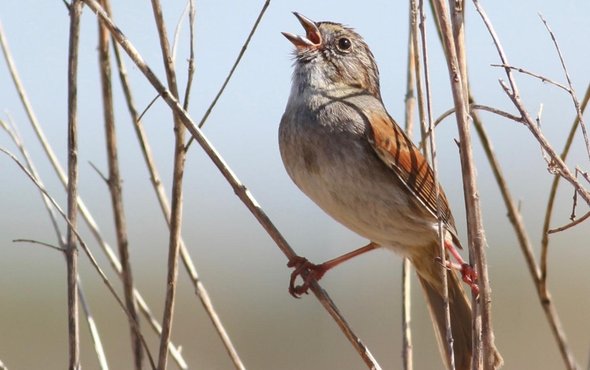This is Scientific American — 60-Second Science. I'm Christopher Intagliata.
Travel the U.S. and you'll hear English spoken in a multitude of ways. And it turns out the same can go for songbirds—specifically the swamp sparrow. (swamp sparrow sound)
Scientists have now used those swamp sparrow regional "dialects," together with computer simulations, to extrapolate how the sparrow's songs have changed and evolved over time. And they found that certain song motifs could date back hundreds, even thousands of years.
"That's where, frankly, it blew me away, I have to say." Steve Nowicki, a biologist at Duke University. "If Leif Erikson had taken time once he discovered North America to get as far in as northwestern Pennsylvania, where I just was last week, he would have heard some—not many, but some of the same song types I was just listening to."
The study is in the journal Nature Communications.

Passing learned information from generation to generation—that sounds a whole lot like culture.
"It is culture. These birds are showing a persistence of cultural tradition that is heretofore unknown and, you know, sort of matches that of the best cultural persistence we might see in human culture."
But sparrows aren't as cognitively complex as humans, he says, implying that you don't need human-type smarts to develop cultural traditions.
Thanks for listening for Scientific American — 60-Second Science. I'm Christopher Intagliata.












